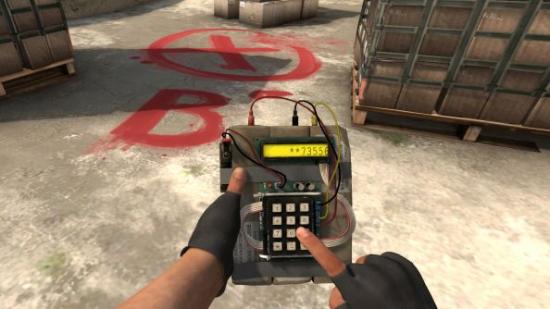A little-noticed upset in competitive Counter-Strike: Global Offensive last year has been confirmed as a fixed match involving numerous pro-players and thousands of dollars in wagered money. Now Valve has taken action, placing bans against seven people involved in the scandal and directing that partner organizations bar them from participating in any CS:GO events that Valve has sponsored.
It’s another in a growing list of incidents in CS:GO and eSports that highlight problematic standards of behavior and the increasing stakes involved in eSports wagering.
Richard Lewis, a well-known eSports journalist with The Daily Dot, broke the story on January 16th. It’s a well-researched report and definitely deserves a read, especially because it illustrates just how deep this rabbit hole goes.
The short version is that CS:GO team iBUYPOWER threw a match in which they were heavy favorites in CEVO Professional Season 5. Even at the time, iBUYPOWER’s performance and demeanor during the game raised a few eyebrows, but then word started to slip out that the match had been rigged, and several members of the pro CS:GO community had advanced notice of the outcome.
The games were rigged in order to win bets on CS:GO Lounge, a Counter-Strike wagering and item-trading website. CS:GO lounge apparently had also noticed some odd betting patterns, and had traced many of the suspicious matches back to one well-connected member of the pro CS:GO scene: Duc “cud” Pham.
The scandal implicated the former iBUYPOWER roster, one of the top squads in North America, as well as a few other members of the CS:GO community, like Cloud9 player Shahzeb “ShahZam” Khan.
Now Valve has confirmed the allegations raised by The Daily Dot and issues bans to seven players.
-
Duc “cud” Pham
-
Derek “dboorn” Boorn
-
Casey Foster
-
Sam “Dazed” Marine
-
Braxton “swag” Pierce
-
Keven “AZK” Larivière
-
Joshua “Steel” Nissan
Valve has furthermore addressed eSports betting in CS:GO, saying, “Professional players, their managers, and teams’ organization staff, should under no circumstances gamble on CS:GO matches, associate with high volume CS:GO gamblers, or deliver information to others that might influence their CS:GO bets.”
This is the latest in a series of cheating-related incidents in eSports and Counter-Strike. The DreamHack Winter finals were marred by Fnatic’s use of an exploit that they’d discovered and kept hidden. There have been numerous other match-fixing incidents in CS:GO as well, and The Daily Dot has been doing great work covering them. It’s becoming a major problem for the sport.
Not just CS:GO, though. Just last week, major allegations of match-fixing were raised by betting site Pinnacle Sports about a suspicious match in the StarCraft 2 Proleague. Less seriously, but still embarrassing for StarCraft, was an incident in the WCS Europe qualifiers in which up-and-coming player Fabian “GunGFuBanDa” Mayer lost his qualifying match and then attempted to barter for the victory with his opponent. Whether or not it was a serious attempt (and it doesn’t really look like one), it does highlight a problem of behavior standards in eSports.
Esports are fairly young and the growing betting scene is even younger. The players tend to be young. It’s a combination of factors that is proving dangerous for the integrity of eSports. In the far less-regulated CS:GO scene, cheating and collusion appear to be flourishing. But after a winter like this one, pro players are going to find themselves under much more scrutiny than they were before.
